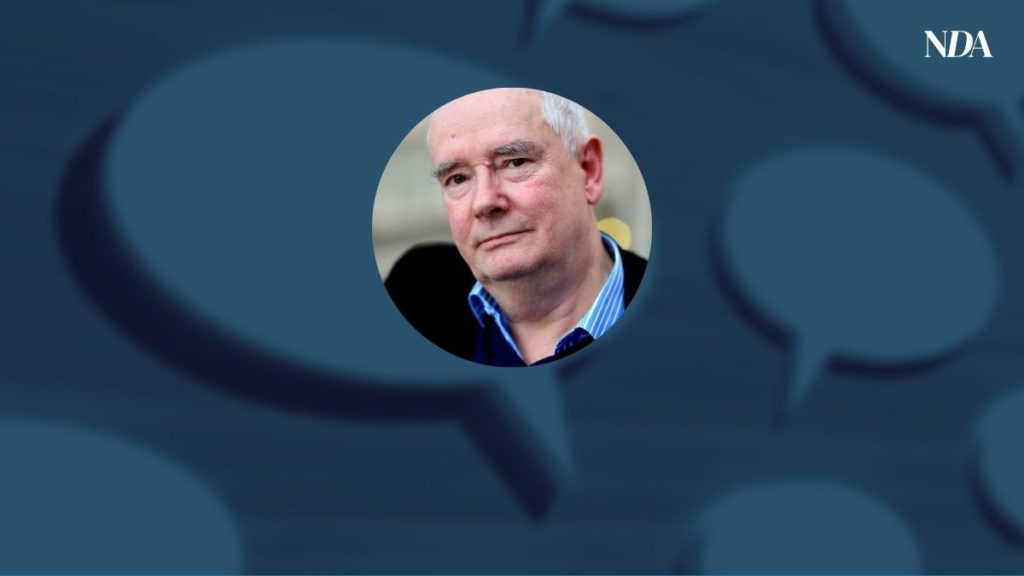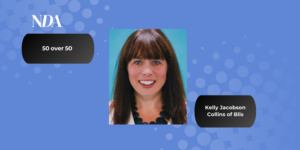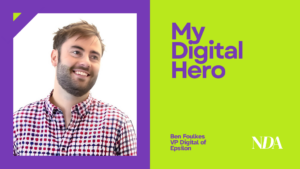By Patrick Collister, Executive Creative Director for Ad-Lib.io, Curator of The Caples Awards and Editor of Directory.
When my friend Oli Marlow Thomas founded Ad-Lib.io, he founded it with the rather dramatic mission statement, ‘Let’s save the internet’. His pitch to brands was that because the web was awash with such bad advertising, the whole business model was in danger of collapse.
If it’s true that 42.7% of internet users have installed ad blockers (nudging 50% among Gen Z), then advertising will soon be unable to finance the free and open net. Only better ads could save the day, he argued.
Elsewhere in the forest, former UK Prime Minister Tony Blair has also been sounding off about the dangers facing the internet. It worries him that what was once a free and open way to distribute information and content anywhere and everywhere around the world is being dismantled. In its place are emerging various “splinternets”.
The war in Ukraine is pulling focus on an uncomfortable dilemma. President Zelensky isn’t just asking for weapons, he’s asking the West to isolate Russia digitally. In other words, to put the boot in on Tim Berners-Lee’s original vision and turn the worldwide web into a mostoftheworld web. Already, CNN report that as the big tech companies pull out, many .ru sites are disappearing.
Have you seen Arnold Schwarzenegger’s masterful address to the Russian people? I don’t suppose many Russians have. This is because a digital iron curtain is now in place.
And it has a precedent. The great firewall of China.
Covid-19 showed how effectively the Chinese government was able to control what their citizens saw and believed about the pandemic. Depressingly, the Internet Police Force is not short of informants to alert them to objectionable material. Digital borders are in place in North Korea, Iran and Myanmar.
But it isn’t just countries with deranged, autocratic leadership that are in favour of online controls. The USA is teetering that way too but driven by the politics of business rather than the politics of containment. Donald Trump (and who said anything about deranged autocrats?) wanted to control the internet too. In 2018 he repealed President Obama’s Open Internet Order, which had protected free and open access to the internet.
The argument is that net neutrality allows vile sites to flourish and exposes our children to filth. The counterargument is that control is another word for censorship and, without anyone really noticing, the country founded on principles of free speech may soon be not so free.
More to the point, the big ISPs can (and there is some evidence they do) meter access. It is alleged that mobile users with cheaper plans are being targeted and their engagement with Netflix, YouTube and Amazon “throttled”.
Soon after the repeal in June 2018, Verizon was reported in The Guardian to have “throttled” Santa Clara fire department because they wouldn’t upgrade from $37.99 plan to a $39.99 plan. As a result, California’s largest ever wildfire was allowed to get out of hand.
If the ISPs can charge premium prices to websites that want greater bandwidth, they will. Smaller businesses will be at a significant disadvantage. Not just free speech but free trade is in danger.
In this context, then, worrying about the quality of the ads being served looks a bit like fussing over the paint colour of an Exocet missile. Bad ads are the least of our problems. Except that for many people, Gen Z especially, they are the entire problem. They hate advertising so much they really don’t care where the internet is heading, provided it is ad-free. Through apathy, they are both unaware of the issues and uninterested in the outcomes.
When Oli talked about saving the internet, he didn’t mean ‘let’s save democracy’. But I’m beginning to think that’s what could be at stake.












